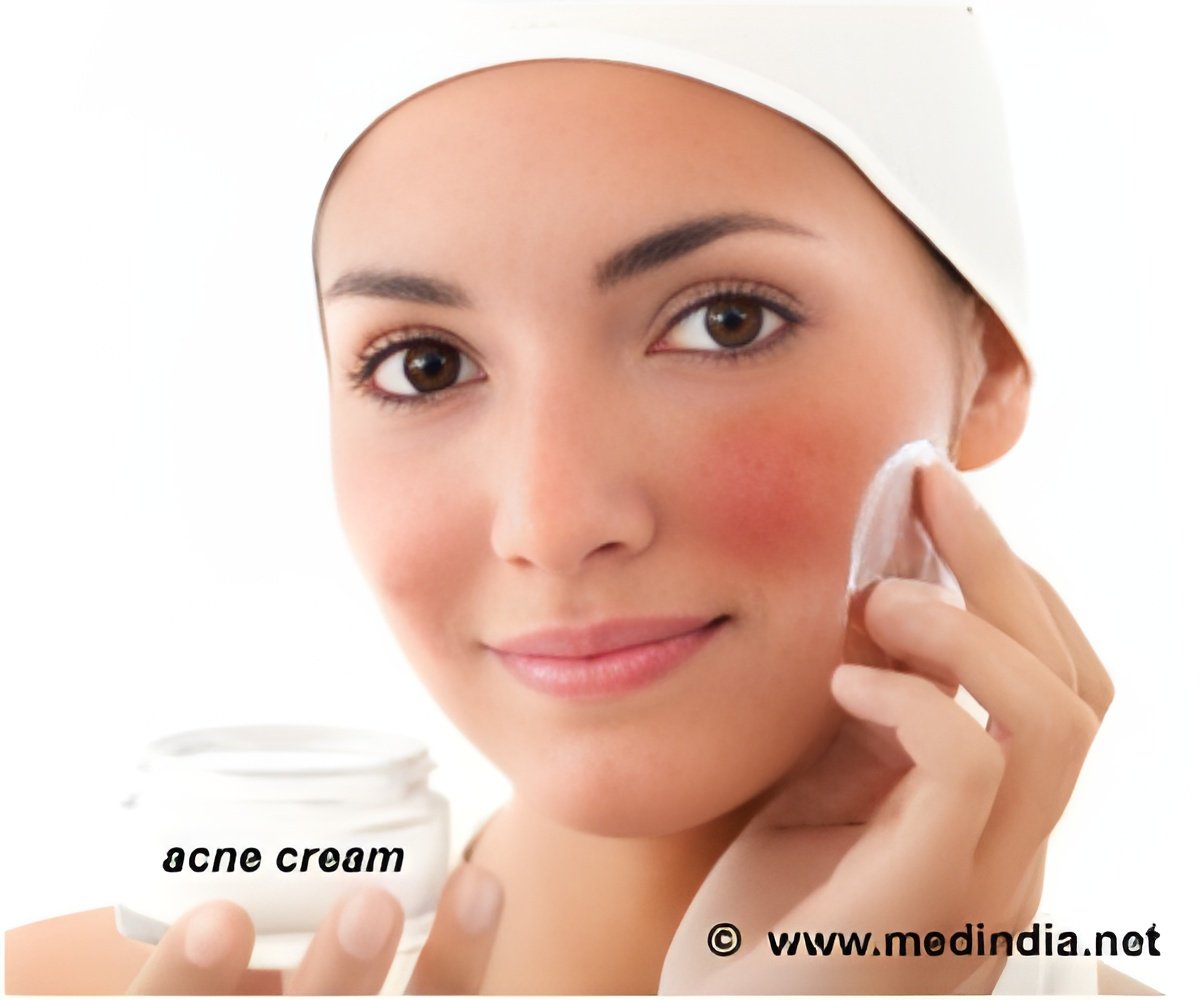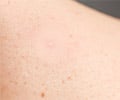A number of pregnant women are bothered by acne flares caused by an increase in androgen hormones, which may put a dampener on the glowing skin effect

The good news is that acne that occurs during pregnancy can be safely treated with a number of effective acne treatments - from over-the-counter products to topical or oral medications depending on acne severity. The key is to consult a board-certified dermatologist to find the acne treatments best suited for each woman's specific type of acne.
AMERICAN ACADEMY OF DERMATOLOGY EXPERT
Information provided by board-certified dermatologist Jonette Elizabeth Keri, MD, PhD, FAAD, associate professor of dermatology and cutaneous surgery at the University of Miami Leonard M. Miller School of Medicine and chief of dermatology at the Miami Veterans Administration (VA) Hospital, both in Miami, Fla.
ACNE THERAPIES & PREGNANCY
Topical Acne Medications
Since some medications pose a potential risk of birth defects if taken during pregnancy, the Food and Drug Administration (FDA) established five categories rating the safety of medications.* In general, Dr. Keri recommends prescribing acne medications that fall into Category B, as they are considered safe medications for use during pregnancy and pose no known risks to the health of the fetus. She explained that there are no true FDA-approved Category A medications for acne.
When treating a pregnant patient with acne, Dr. Keri usually recommends starting with these topical medications:
- Over-the-counter acne medications and facial washes
o Glycolic acid (Category N, not rated)
- Topical antibiotics available by prescription (Category B)
o Erythromycin
o Clindamycin
o Azelaic acid
o Metronidazole
Of all the available topical acne medications, Dr. Keri prefers to prescribe topical azelaic acid to treat acne during pregnancy for its added benefit of improving pigmentary problems such as melasma (known as the "mask of pregnancy") or blemishes.
Advertisement
In cases where patients are not responding to topical acne medications or if the acne appears to be worsening, an oral acne medication may be an option. Although oral
medications are not the first line of treatment for women who develop acne while pregnant, Dr. Keri mentioned that three oral antibiotics - all rated Category B medications - are considered safe and effective:
- Azithromycin
- Cephalexin
- Erythromycin
In rare, severe acne cases, oral corticosteroids may be used to prevent scarring.
Advertisement
There are effective light-based therapies available to treat acne in pregnant patients that may not be responding to other acne treatments. While these light-based therapies are not first-line therapies for treating acne, Dr. Keri noted that red and blue light phototherapy are safe and can be used in instances where topical prescription or over-the-counter medications are not working to clear acne. However, these light treatments are not covered by insurance and need to be administered by a dermatologist once a week.
DR. KERI''S TIPS FOR ACNE PRONE SKIN: BEFORE, DURING AND AFTER PREGNANCY
Pre-Pregnancy
- Try to get acne under control before trying to get pregnant. If a woman has acne before pregnancy and is taking an oral medication, her acne could get worse once she stops her current acne medication while pregnant.
- Women should try to maintain a healthy body weight pre-pregnancy. If a woman is overweight before getting pregnant, studies show there is an increased chance that a male child will reach puberty at an earlier age - thus having acne at an earlier age.
During Pregnancy
- Wash the skin with lukewarm water and mild cleansers or foams. Avoid cleansers that contain beads that scrub the skin; they are too inflammatory for skin that is already inflamed by acne.
- Use a broad-spectrum sunscreen (protects the skin from both UVA and UVB rays) with a Sun Protection Factor (SPF) of 30 or higher every day to protect the skin from pigmentary changes that can occur during pregnancy. Dr. Keri prefers the use of physical sun blockers, which contain zinc or titanium.
Post-Pregnancy
- If a woman chooses to breastfeed her baby, she must view medications categorized by the FDA the same way she would during pregnancy.
- Generally, if a medication is safe to use during pregnancy, it is safe to use during lactation.
- Pediatricians are the best resource for questions during lactation, as Dr. Keri explained that pediatricians have lactation ratings for medications.
If pregnant women develop acne and are concerned about taking medications, Dr. Keri encourages women to discuss their treatment options with a board-certified dermatologist. Oftentimes, dermatologists and obstetricians can work together to manage a patient's acne and ensure that all medications used fall into the safest drug categories as outlined by the FDA.
AMERICAN ACADEMY OF DERMATOLOGY EXPERT ADVICE:
"Acne is not a condition that should be dismissed because a woman is pregnant, as it's important for women to feel good about themselves during pregnancy and particularly post-partum when the ‘baby blues'' or post-partum depression could become an issue," said Dr. Keri. "It's really a personalized decision to seek treatment for acne while pregnant, and women should consult their dermatologist to understand the options available to them."
Headquartered in Schaumburg, Ill., the American Academy of Dermatology (Academy), founded in 1938, is the largest, most influential, and most representative of all dermatologic associations. With a membership of more than 17,000 physicians worldwide, the Academy is committed to: advancing the diagnosis and medical, surgical and cosmetic treatment of the skin, hair and nails; advocating high standards in clinical practice, education, and research in dermatology; and supporting and enhancing patient care for a lifetime of healthier skin, hair and nails. For more information, contact the Academy at 1-888-462-DERM (3376) or >www.aad.org. Follow the Academy on Facebook (American Academy of Dermatology) or Twitter (@AADskin).
* The five categories established by the FDA to indicate the potential of a drug to cause birth defects if used during pregnancy include:
- Category A - Medications were determined safe for pregnant women in studies.
- Category B - Medications were tested in pregnant animals and showed no risk to the fetus (presumed to be safe in pregnant women).
- Category C - Medications have shown an adverse effect on the fetus when tested in some animals but no testing has been replicated in humans (use with caution during pregnancy if benefits outweigh risks).
- Category D - Medications pose a risk to the fetus based on reported adverse reactions or human studies (use with caution during pregnancy and only when benefits outweigh risks).
- Category X - Medications have demonstrated fetal abnormalities in human or animal studies, and the risks involved if taken during pregnancy outweigh any potential benefits.
In addition, drugs that have not been classified by the FDA are rated as Category N medications.
Source-Newswise














